John Herron is a retired computer programmer & analyst who now works part-time teaching chess to children.
John has taught thousands of children to play chess with his 1-2-3 approach.
He finished tied for first place in the 1992 U.S. Open Chess Tournament, Class C. He also coached a two-time Scripps National Spelling Bee finalist. His interests include artificial intelligence, backgammon, chess, go, poker, scrabble, bicycling, sailing, tennis, table tennis, volleyball, and wallyball.
John is also the author of numerous chess books including Total Chess and Totally Puzzled.
Chess Articles by John Herron

Dynamic tactics occur when an attack involves more than one of the opponent’s pieces. They are the most common tactics in chess. They happen all the time, if you know what to look for. 1) Fork A fork tactic happens when one piece attacks two pieces at the same time. While the opponent is busy […]
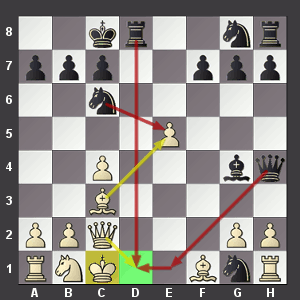
Direct tactics occur when an attack involves only one of the opponent’s pieces. They are the easiest tactics to learn and use. 1) Single Threat A single threat happens when one piece attacks one of the opponent’s pieces, or gives check, or makes a threat. It may be a checkmate threat or a threat to […]

Board strategy means making your overall position better. A better position leads to better moves, and better moves leads to a better game. You should always try to make your position better, and try to make the opponent’s position worse. There are three parts to the chess strategy to make your overall position better. The […]
Piece strategy means making your pieces better. Better pieces lead to better moves, and better moves lead to a better game. What is a better piece? A better piece is a piece that is well placed on the board, or a piece that works well with other pieces.
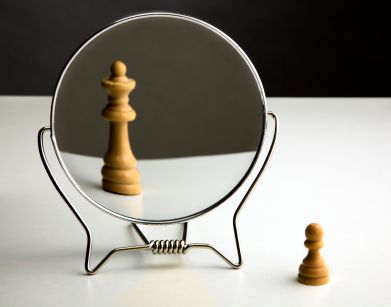
Pawns are the least valuable pieces on the chess board. So, are pawns important? Yes! Every pawn could turn into a queen. When you capture one of the opponent’s pawns, you never have to worry about that pawn becoming a queen. When the opponent captures one of your pawns, you have one less chance of […]
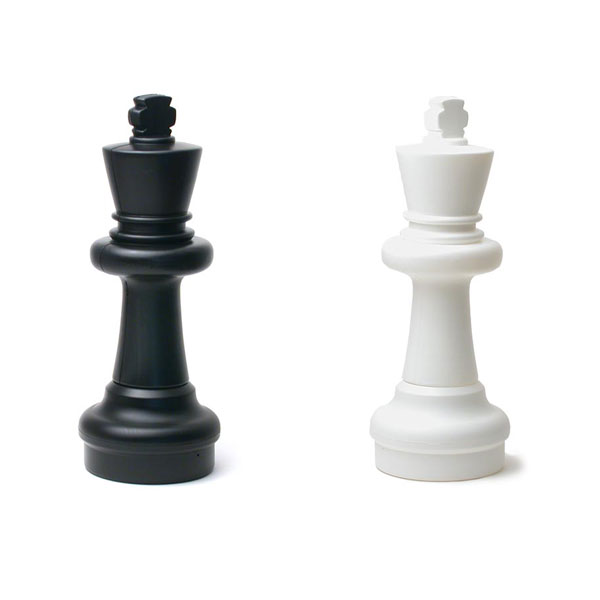
This endgame might seem simple, but it is not. There is a lot of strategy. If you have the pawn and you can promote it to a queen, then you will win. If the opponent has the pawn and you can stop it from promoting to a queen, then you will draw. Often, the deciding […]

There are three more ways to draw, but they do not happen very often. They are more common with advanced players than with beginners, and they are more difficult to recognize and harder to decide.

Now that you know about strong pawns and weak pawns, you are ready to learn about pawn advances and pawn exchanges. The pawn structure changes every time you or the opponent moves or captures a pawn. Naturally, you want the changes to be in your favor, not in the opponent’s favor. Always consider the changes […]
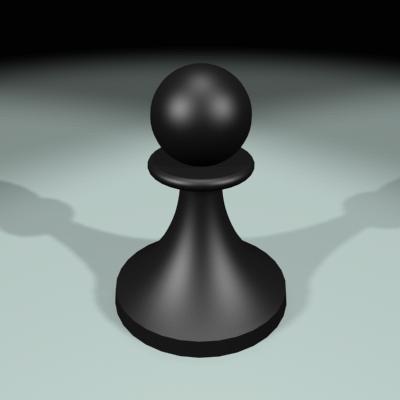
Strong Pawns Pawns that work well together are called strong pawns. They are hard to attack and easy to defend. You should try to make your pawns strong, and try not to make the opponent’s pawns strong. Strong pawns usually become stronger in the endgame.
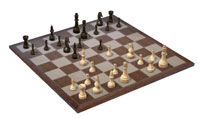
There are three things you should try not to do in the opening. They will hurt your game rather than help it. There are some exceptions, but generally these are mistakes you should avoid.

 Dynamic tactics occur when an attack involves more than one of the opponent’s pieces. They are the most common tactics in chess. They happen all the time, if you know what to look for. 1) Fork A fork tactic happens when one piece attacks two pieces at the same time. While the opponent is busy […]
Dynamic tactics occur when an attack involves more than one of the opponent’s pieces. They are the most common tactics in chess. They happen all the time, if you know what to look for. 1) Fork A fork tactic happens when one piece attacks two pieces at the same time. While the opponent is busy […] Direct tactics occur when an attack involves only one of the opponent’s pieces. They are the easiest tactics to learn and use. 1) Single Threat A single threat happens when one piece attacks one of the opponent’s pieces, or gives check, or makes a threat. It may be a checkmate threat or a threat to […]
Direct tactics occur when an attack involves only one of the opponent’s pieces. They are the easiest tactics to learn and use. 1) Single Threat A single threat happens when one piece attacks one of the opponent’s pieces, or gives check, or makes a threat. It may be a checkmate threat or a threat to […] Board strategy means making your overall position better. A better position leads to better moves, and better moves leads to a better game. You should always try to make your position better, and try to make the opponent’s position worse. There are three parts to the chess strategy to make your overall position better. The […]
Board strategy means making your overall position better. A better position leads to better moves, and better moves leads to a better game. You should always try to make your position better, and try to make the opponent’s position worse. There are three parts to the chess strategy to make your overall position better. The […] Pawns are the least valuable pieces on the chess board. So, are pawns important? Yes! Every pawn could turn into a queen. When you capture one of the opponent’s pawns, you never have to worry about that pawn becoming a queen. When the opponent captures one of your pawns, you have one less chance of […]
Pawns are the least valuable pieces on the chess board. So, are pawns important? Yes! Every pawn could turn into a queen. When you capture one of the opponent’s pawns, you never have to worry about that pawn becoming a queen. When the opponent captures one of your pawns, you have one less chance of […] This endgame might seem simple, but it is not. There is a lot of strategy. If you have the pawn and you can promote it to a queen, then you will win. If the opponent has the pawn and you can stop it from promoting to a queen, then you will draw. Often, the deciding […]
This endgame might seem simple, but it is not. There is a lot of strategy. If you have the pawn and you can promote it to a queen, then you will win. If the opponent has the pawn and you can stop it from promoting to a queen, then you will draw. Often, the deciding […] There are three more ways to draw, but they do not happen very often. They are more common with advanced players than with beginners, and they are more difficult to recognize and harder to decide.
There are three more ways to draw, but they do not happen very often. They are more common with advanced players than with beginners, and they are more difficult to recognize and harder to decide. Now that you know about strong pawns and weak pawns, you are ready to learn about pawn advances and pawn exchanges. The pawn structure changes every time you or the opponent moves or captures a pawn. Naturally, you want the changes to be in your favor, not in the opponent’s favor. Always consider the changes […]
Now that you know about strong pawns and weak pawns, you are ready to learn about pawn advances and pawn exchanges. The pawn structure changes every time you or the opponent moves or captures a pawn. Naturally, you want the changes to be in your favor, not in the opponent’s favor. Always consider the changes […] Strong Pawns Pawns that work well together are called strong pawns. They are hard to attack and easy to defend. You should try to make your pawns strong, and try not to make the opponent’s pawns strong. Strong pawns usually become stronger in the endgame.
Strong Pawns Pawns that work well together are called strong pawns. They are hard to attack and easy to defend. You should try to make your pawns strong, and try not to make the opponent’s pawns strong. Strong pawns usually become stronger in the endgame. There are three things you should try not to do in the opening. They will hurt your game rather than help it. There are some exceptions, but generally these are mistakes you should avoid.
There are three things you should try not to do in the opening. They will hurt your game rather than help it. There are some exceptions, but generally these are mistakes you should avoid.


